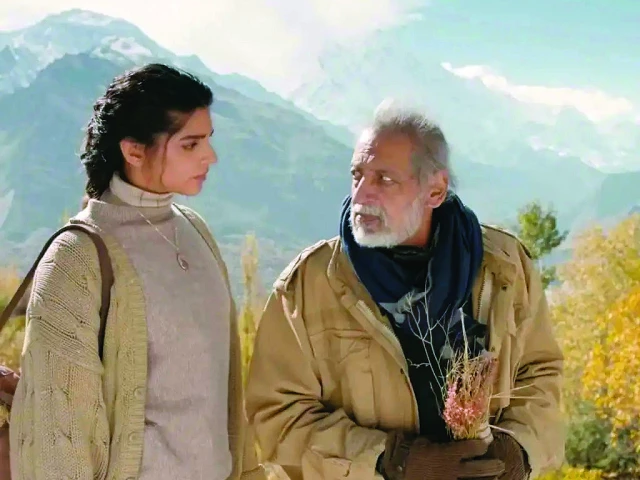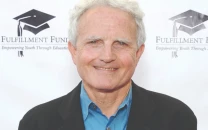Salman Shahid feels 'Barzakh' backlash was unwarranted
Veteran maintains that art depicts society's issues

During a recent appearance on Gup Shab with Vasay Chaudhry, veteran actor Salman Shahid shared his philosophical views on the furore of backlash that unleashed after his OTT series, Barzakh, last summer.
"All the artists involved were constantly in touch with each other at the time," recalled Salman. "We were upset because we didn't think we'd get such a big reaction – but it happened.
In Barzakh, which also featured modern-day A-listers Fawad Khan and Sanam Saeed, Salman brought to life the character of Jafar Khanzada, embodying the stubbornness and toxicity of a traditional South Asian patriarch.
A Pakistani-Indian production, the six-episode series, which also featured Fawad Khan and Sanam Saeed, made its worldwide premiere on Zee Zindagi's YouTube and ZEE5 on July 19 last year. However, whilst Salman's performance was praised, Barzakh proved to be a masterclass in controversy. The picturesque scenery and cinematography and the presence of A-listers and veterans alike paled in comparison to the overarching themes explored in the show, leading to the series ultimately being pulled from YouTube in Pakistan.
"Sometimes, things get a big reaction," observed Salman. "They get a huge response from people, but then everything dies down as well. This is how it is. It's not a big deal."
The veteran, however, dismissed those who court the limelight in a bid for attention after regularly finding fault with the content they see.
"Some people dislike everything," remarked Salman. "I, too, don't like some things – but that doesn't mean I create an issue over everything. When you are constantly making an issue over everything, all it means is that you want to come into the spotlight. You just want attention."
However, as a longtime acting professional, Salman added that it was important that artists understood that any creative work in the public eye is open to criticism as well as praise.
"As performers, we should expect that we get both praise and criticism," illustrated Salman. "Anybody who is in the media at any level should accept it. If they are being praised, they would be deluded if they think that praise is all they are going to get. After all, if you do something wrong, you should accept it."
In the case of Barzakh, however, Salman felt that the tidal wave of criticism was unwarranted. According to him, art depicts life. In Salman's eyes, if audiences are unable to accept what they see, they should accept that what is being shown on screens is simultaneously taking place in real life as well.
"In your society, there are things [that you may not like]," pointed out Salman. "If you don't want anyone to shine a light on it, you are just covering up something you don't want to see."
Following harsh criticism from local viewers, Barzakh was no longer available to audiences in Pakistan after August 9. The decision to pull the plug on the series in Pakistan was preceded by a statement on social media by the Zindagi team, as well as a separate missive on X from director Asim Abbasi to his followers.
"No story of mine is worth more than the safety of all the beautiful, talented artists who came together to craft it," wrote the director. "So this decision really is for the best. For all those who have showered us with love, I hope you enjoy the finale! And remember - stories never die."
Prior to his role in Barzakh, Salman was last seen in the television drama Nauroz. Having started his career in showbiz in the 1970s, he completed his film studies from the prestigious Moscow Film School in 1976. As well as appearing in a slew of Pakistani films and dramas, Salman has also appeared in Bollywood films Kabul Express (2006) and Ishqiya (2010).



















COMMENTS
Comments are moderated and generally will be posted if they are on-topic and not abusive.
For more information, please see our Comments FAQ